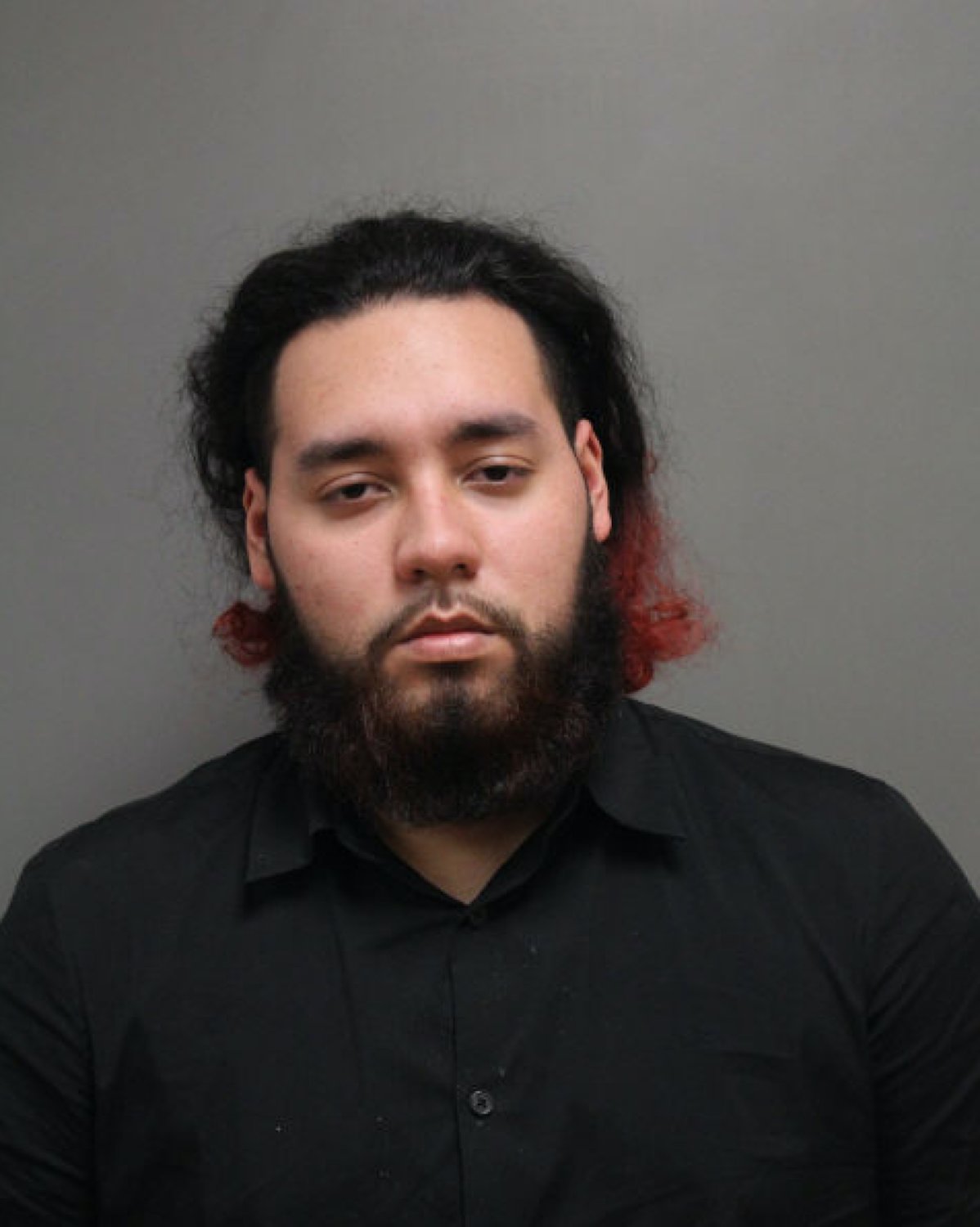Islip man arrested for swastika graffiti on Centre Island
Islip resident Ivan Martinez, 19, was arrested for an aggravated harassment incident that occurred on Jan. 31 on Centre Island.
According to the Nassau County Police Department, Town of Oyster Bay Constables discovered a large blue swastika spray-painted on a Centre Island Road stop sign. Martinez was seen on surveillance footage and was apprehended on Feb. 9 after an investigation. He has been charged with first-degree aggravated harassment, fourth-degree criminal mischief and making graffiti.
The Nassau County District Attorney’s office could not provide the name of Martinez’s lawyer by press time. He is set to appear in First District Court on May 17.
Andrea Bolender, chairwoman of the Holocaust Memorial & Tolerance Center of Nassau County, said she is all too familiar with anti-Semitic graffiti, as the center was vandalized with spray-painted swastikas in November 2019. Such crimes are born out of ignorance and a desire for a reaction, she said, as many of the perpetrators do not understand the significance of their actions.
Rather than have them serve jail time or receive fines, Bolender said she prefers that people who engage in anti-Semitic vandalism perform community service at places like the HMTC. She wants them to learn why swastikas cause such a reaction and why they affect people so negatively, she said, something that can be done by learning about the Holocaust and speaking with survivors.
“I think, once people learn what negative feelings they’re causing, they’re less likely to do these things,” Bolender said, “because they’ll understand the feelings behind it.”
Holocaust education still does not get the attention that it should, she said. There is no mandate for it in 35 states and no specific curriculum in the 15 states where it is mandated. If something like this can happen in New York, which has the largest Jewish population in the world outside of Israel, Bolender said it is hard to think about what might happen elsewhere.
“If that one person can be taught why what they did was wrong and teach two other people, we’ve already made some headway,” Bolender said. “So, it’s not so much about punishment — it’s about education.”

 47.0°,
Overcast
47.0°,
Overcast 




